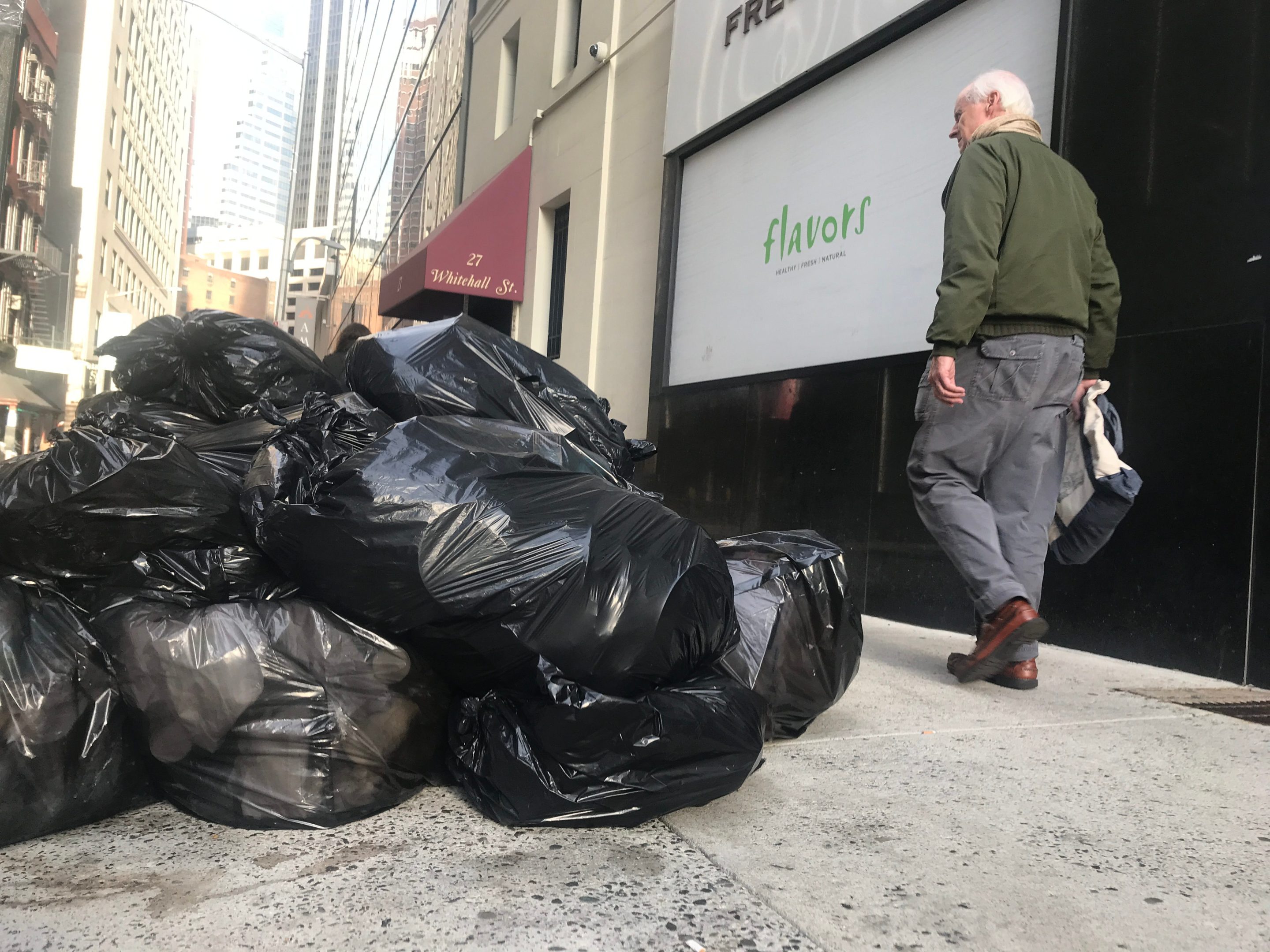Goodbye Green Wave. So long better bus service. Adios clean streets. Oh and look out for that falling tree branch!
The de Blasio administration has announced $1.3 billion in emergency budget cuts — and many livable streets initiatives, such as protected bike lanes, extra garbage pickup and public awareness campaigns to beg reckless drivers to stop killing us, are on the chopping block.
The cuts are justified, said mayoral spokeswoman Freddi Goldstein because "in light of the COVID-19 pandemic and resulting revenue losses to the city, we must take significant action to preserve our ability to provide basic operations and continue to fund life-saving measures."
That's not how advocates see it.
First, the pain. To see $1.3 billion, the de Blasio administration proposes the following cuts in these key areas (some cuts are due to obviously reduced need during the virus lockdown):
- Fair Fares enrollment underspending due to COVID-19: $46 million in savings between now and the end of June.
- Delay rollout of the "Better Bus Initiative" given that traffic is down during the virus: $2.7 million in savings through June and $5.7 million in savings between July 2020 and June, 2021 (when, presumably, ridership returns to pre-COVID levels).
- Reduce funding for Vision Zero public awareness campaign: $3 millions in savings now through June, 2021 (DOT did not respond to question about this).
- Reduce funding in markings and materials used for Vision Zero street improvement programs: $4 million in savings now through June, 2021 (DOT did not respond to question about this).
- Reduce funding for protected bicycle lane (or “Green Wave”) projects: $3 million in savings now through June, 2021 (DOT did not respond to question about this). The mayor unveiled the $58-million initiative only last year.
- Reduce overnight Staten Island ferry service because of reduced demand: $6 million in savings now through June, 2021 (DOT did not respond to question about this).
- Summer Youth Employment Program: $124 million in savings through June 2021 (Goldstein said it was "unclear if [the program is] feasible at all as practical health matter."
- Elimination of a fourth day of garbage collection in "rat zones": $1.5 million in savings. (Goldstein said "utilization has been low on fourth days.")
- Reduce Brooklyn North cleaning: $1.2 million in savings. (Goldstein said there was "no evidence this increase has improved cleanliness. Council Member Steven Levin did not return a request for comment.)
- Reduce Sunday and Holiday basket service: $1.7 million in savings.
- Reduction in contracted tree pruning (retaining in-house emergency capacity): $3 million in savings through June, 2021.
- Elimination of Emerald Ash Borer removal program: $3.1 million through June, 2021. (The emerald ash borer is an invasive bug.)
Perhaps most alarming: "Hiring Freeze and Vacancy Reductions across multiple agencies" for a total savings of $106 million through July, 2021. (That's a concern for advocates because if the city eventually returns to normal footing, a hiring freeze will likely delay the restoration of projects that had been put off during the crisis.(
The cuts are severe, but livable streets advocates were surprised how dramatically they fell on the most vulnerable road users.
"Why are only pedestrians, cyclists, and public transit users impacted by DOT's cuts?" asked Danny Harris, the executive director of Transportation Alternatives. "There are $24M in cuts [in the Department of Transportation] and none inconvenience drivers. That is unacceptable."
A former DOT official, Jon Orcutt, was also angry that the cuts disproportionately affected Vision Zero initiatives.
"DOT has huge street resurfacing, signal, parking and bridge operations [which are] are untouched versus safety, bikes and transit," he said. "It’s pretty shocking."
The de Blasio administration proposal heads to the City Council, where Council Speaker Corey Johnson promised alterations.
“Our budget process is just beginning, and the challenges we face will be unlike any we’ve ever faced before," said Johnson's spokeswoman, Jennifer Fermino. "The Council is proud that under Speaker Johnson’s leadership, we have fought for increased budget reserves and expansions to the social safety net. The Council’s chief priority, as always, is doing what is right for this city. This will be our guiding principle throughout the difficult weeks and months ahead.”
— with Dave Colon






